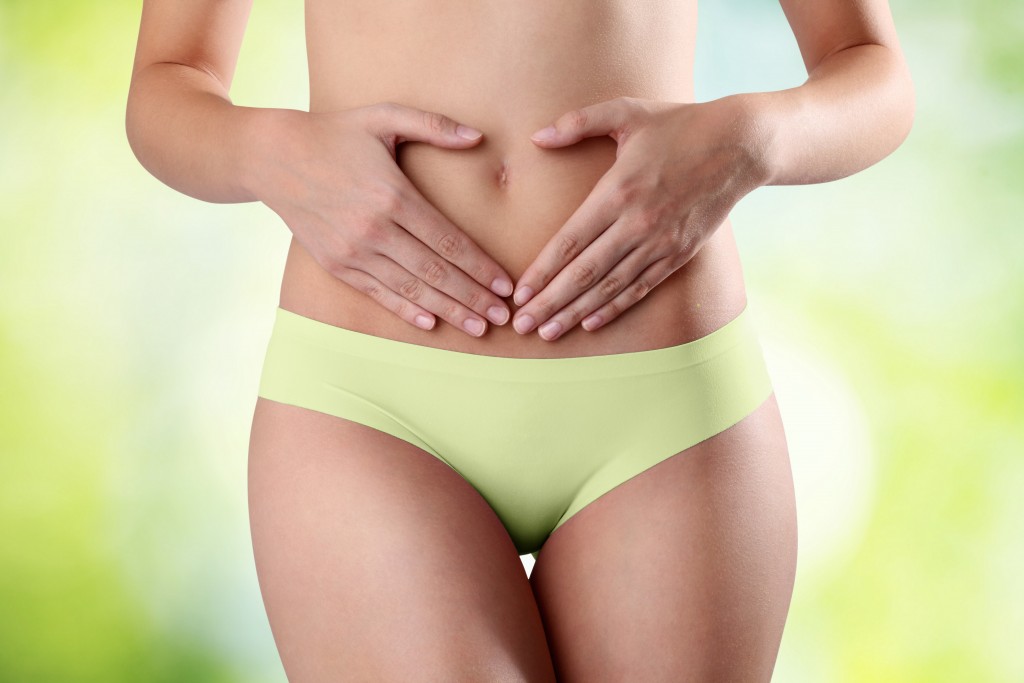Ovulation symptoms aren’t difficult to notice. Your body temperature rises by one degree, your cervical mucus turns clear and slippery, your breasts are tender when you touch them, your belly feels bloated, and your stomach is cramping. If these sound familiar to you, then you should know you’re not alone – in fact, most women experience symptoms of ovulation every month. Telling what’s normal and what isn’t can be a challenge. Unless you ask an expert, there’s no way to discover that by yourself.
But – you’re not alone. If you’ve been experiencing some unusual pre-ovulation symptoms and don’t know if they should concern you, we’ve prepared a prime material with information about this phase of your menstrual cycle. Our expert has answered our readers’ most burning questions below:
1. Why Do I Have PMS Symptoms During Ovulation?
Hello,
I was wondering if normal PMS symptoms occur during ovulation as well? My period symptoms include bloating, severe stomach pain, breast tenderness and nausea, and recently I’ve noticed that they occur when ovulating. I’ve been having my period for two years already (I’m 17), but never again have I experienced so much discomfort. I’m not sexually active either, so it’s really confusing. Is there anything wrong with me, or does this happen to all women?
My periods have also become more painful. A pill of ibuprofen used to be enough to soothe the pain, but now it doesn’t work. The heating pad is useless to me, as the stomach cramps I’m feeling are very bad. The only thing that makes them stop is sleeping – which eventually happens if I’m too exhausted.
Could you please advise me? I’m worried sick!
Expert Answers:
Women, and especially young girls like you, experience many physical symptoms when they ovulate, and those you’ve described are probably the most common. You may have no symptoms in the beginning, and many women report no discomfort until years later, when their body reaches maturity. It may look like something is wrong with you, when it actuality you’re perfectly healthy.
Why do women experience ovulation symptoms such as abdominal pain and bloating? As you probably know, ovulation is the release of the egg by one of your ovaries, which occurs every month. There’s no “assigned” pattern for this: the egg may be released by your right ovary this month, and by your left one the next. It depends on the ovary where the egg matures. The egg is housed in a fluid-filled sac named follicle, which bursts to release it.
Right before you ovulate, the membrane covering your ovary stretches, causing pain that’s localized on either the right or left side of your abdomen (depending on the ovary that’s releasing the egg). The bloating is caused by the release of blood and fluids in the process, which results in pressure and discomfort. The nausea, breast tenderness and increased basal body temperature are the result of progesterone dominance in your body.
But not all women do have these symptoms. Some go through unbearable pain every time they ovulate; others experience just mild cramping, as well as some bloating and little discomfort; and others don’t feel anything. If you’re unsure about the cause of the symptoms, talk to your mother about them and consider scheduling an appointment with an ob-gyn. Further investigations will help determine if there’s something else causing the pain.
It’s a little worrying that your periods have also become more painful, but not unusual. The extent of pain you experience can vary widely from month to month. I know women who need to be administered intravenous medication to soothe the pain. If your body has gotten used to ibuprofen, then its effect will be drastically minimized. You may need to switch over to a different over-the-counter painkiller, such as indomethacin. I usually recommend suppositories to all my patients – they’re administered locally, so they take less time to relieve pain.
A visit to an endocrinologist will help you find the best medication for your painful periods.
2. Why Don’t I Experience Any Ovulation Symptoms?
I’ve been having my period for nearly ten years already, and except for the first months, I’ve never had any ovulation symptoms. I’ve been trying to conceive for a while now, but to no avail. Does it have anything to do with the fact that I have no ovulation symptoms? Does this mean I’m not ovulating monthly? Except for lots of vaginal discharge (which happens to me every day, not necessarily when I ovulate), I don’t feel anything.
Do you think I may be infertile? I’m really scared!
Expert Answers:
You’d be surprised to know how many patients have asked me the same question. Every time, I answered the same thing: just because you don’t experience any ovulation symptoms, it doesn’t mean you’re not ovulating. As a matter of fact, you may be experiencing symptoms of ovulation without realizing it.
Stomach cramps and bleeding aren’t the only signs and symptoms of ovulation you can expect. When you ovulate, your basal body temperature rises by one degree. Unless you measure your temperature with a thermometer, it’s quite difficult to notice the difference since it’s relatively small. Another symptom of ovulation is breast tenderness. Try touching your breasts when you ovulate, and you’ll notice they’re very sensitive, almost like when you’re on your period.
Vaginal discharge is another common symptom you can expect when you ovulate. Your cervix softens to let sperm cells travel to the egg. Moreover, estrogen dominance reaches its peak right before the egg is released, which results in large amounts of cervical mucus that’s clear, slippery, and much like uncooked egg white. The amount is 20 times up to 30 times larger than the rest of your menstrual cycle. It may seem unusual and out of the ordinary, but there’s nothing to worry about.
I recommend that you start charting your basal body for 1-3 months. You should notice a change in your normal value around the middle of your menstrual cycle. You should also take note of how your cervical mucus looks like every day by inserting one or two fingers in your vagina and writing down its color, consistency and texture. Right after your period, the discharge will be white, thick and clumpy, and in very small amounts, if any at all. On day 8, the discharge should start getting gradually thinner, turning from white to clear. The amount will be as much as 20 or 30 times more than normally around the time you ovulate.
3. Is There Any Difference Between Ovulation Symptoms vs. Pregnancy Symptoms?
Hi,
I’ve been trying to get pregnant for some time now. Unfortunately, my menstrual cycle has always been irregular, and so I haven’t been very successful. My doctor says I’m not ovulating regularly. It can happen as soon as the 8th or 9th day of my menstrual cycle (about 3-4 days after my period), or as late as the 20th day of my cycle. I can’t predict when I ovulate, so I don’t know when to actually have sex. It’s really frustrating.
However, I’ve been having these weird symptoms for some time now, and I don’t recall having any of them before. I’ve been nauseated, and my normal vaginal mucus is secreted in huge amounts, so much that I change two pads a day. It doesn’t smell or anything, so I’m pretty sure it’s not an infection. I’ve been having awful stomach cramps that go away only after I fall asleep. They’re like my period cramps, but a little milder I think.
Are these pregnancy symptoms, or just signs I’m ovulating?
Expert Answers:
Irregular periods are a problem that’s far more common than you think. Many women ovulate irregularly, and while this may hinder your efforts of getting pregnant, you should know your fertility isn’t at risk.
The symptoms you’re describing are unfortunately common to both ovulation and early pregnancy. However, there are a few ways to differentiate them. First, your basal body temperature increases by one degree when you ovulate. This means that, if your normal BBT is 96°F, then your temperature when you ovulate will be 98°F. Second, the amount of vaginal discharge will decrease within 24 hours of ovulation, so you should no longer have it in 1-2 days. If you were pregnant, the amount of discharge (called leucorrhea) would keep increasing monthly throughout the course of pregnancy.
You haven’t mentioned for how long you’ve been having the cramps. If it’s been longer than 24 hours, then you should no longer have any pain or discomfort if you were ovulating. However, implantation may cause cramps for much longer, so there’s a chance you may be pregnant. Take note of any bleeding if it occurs. That will be a sign the fertilized egg has embedded into the endometrium.
If you were ovulating, then your period will probably arrive within 12 to 14 days. Of course, there won’t be any menstruation if you are pregnant. The only thing you can do is to wait and see if you get your period or not. You may want to take a pregnancy test even if it does, just to rule out the possibility of pregnancy.
4. Why Am I Bleeding When Not on My Period?
Yesterday morning I woke up with some bloating and pinkish spots on my underwear. I initially thought that my period arrived, but I remember it was about 10 days away. Since I haven’t been sexually active for nearly eight months, I know I’m not pregnant, nor do I have an STD. I’ve never had this problem before and it really makes me freak out. I have no stomach cramps or other symptoms, so it’s really confusing. What do you think it’s causing the bleeding?
Expert Answers:
Vaginal bleeding is a concerning issue, so I recommend that you schedule an appointment with your doctor as soon as possible. Even if there’s nothing to worry about, it’s better to conduct further investigations and detect any problem sooner than later.
However, there are a few cases when bleeding is normal and shouldn’t worry you. First, implantation bleeding, which occurs when the egg attaches to the womb (endometrium). You haven’t had sex in longer than eight months, so it certainly isn’t implantation bleeding. Another possibility is spotting (or intermenstrual bleeding), which can occur at any time in your menstrual cycle except when you are on your period. This is especially common when you ovulate, as blood and fluids are released when the follicle bursts and releases the egg.
Postcoital bleeding is bleeding that occurs right after you have sex. Again, this isn’t your case. Have you been taking any form of hormone-based contraceptive pills? If yes, you may deal with breakthrough bleeding, which occurs in women on birth control. While this type of bleeding is usually harmless and doesn’t mean there’s something wrong down there, it’s a good idea to talk to your ob-gyn and let him or her investigate the issue.
If the bleeding is not caused by a problem with your reproductive system, one possible cause would be kidney stones. These are essentially blocks of salt and minerals that your body normally expels through urine. If there’s too much of these minerals, then they turn into stones, which can be as tiny as a grain of sand, or as large as your thumbnail. Undergoing surgery to eliminate these stones will be necessary, otherwise you may deal with more severe consequences in the future.
More severe causes of vaginal bleeding are endometriosis, as well as cancer of the uterus, vagina or cervix. An immediate investigation, as well as additional tests, will be required to help identify what’s causing the bleeding, and if it’s normal or not. One thing you should do is to avoid wearing pads or tampons, as they may interfere with your vaginal flora. Choose sanitary pads instead, and avoid washing down there with any kind of product, soaps included.





